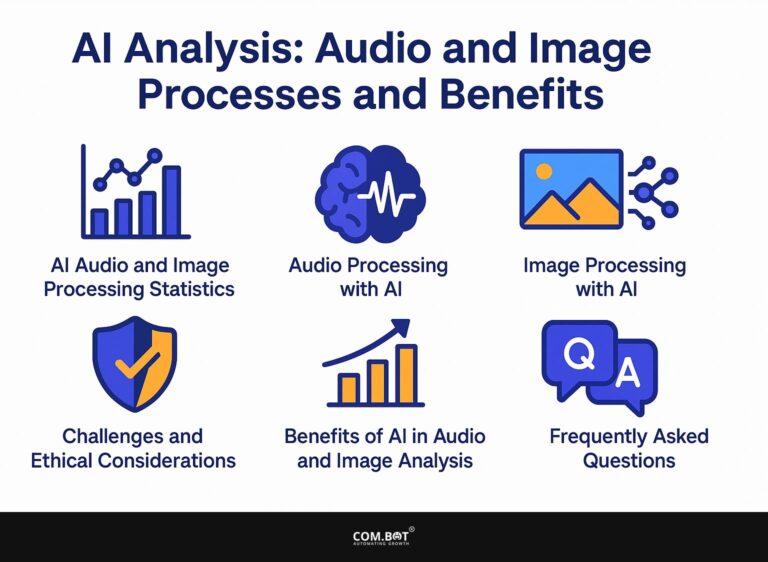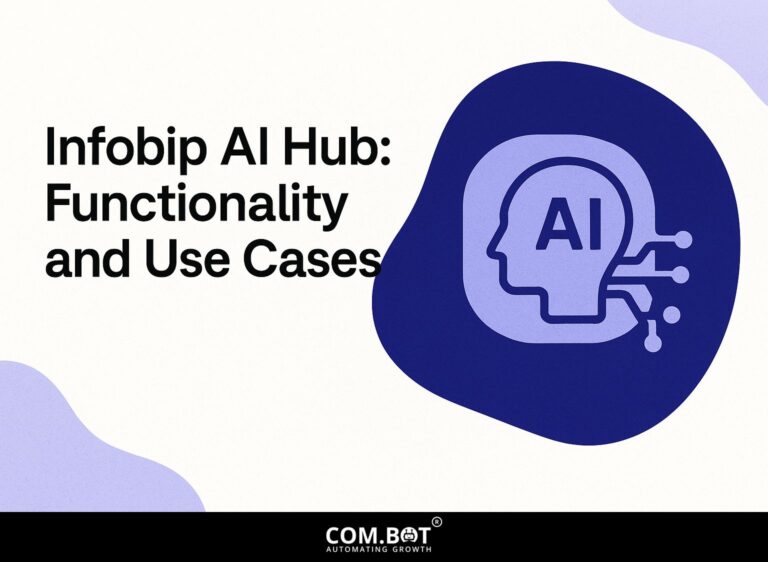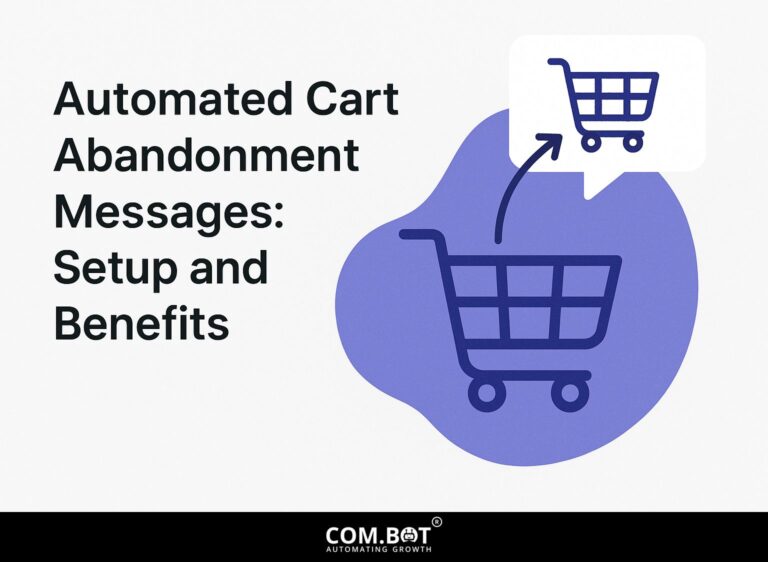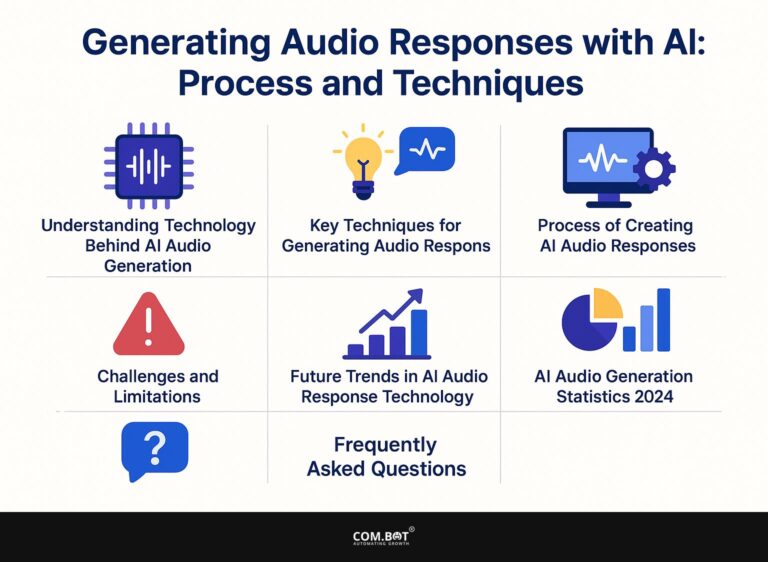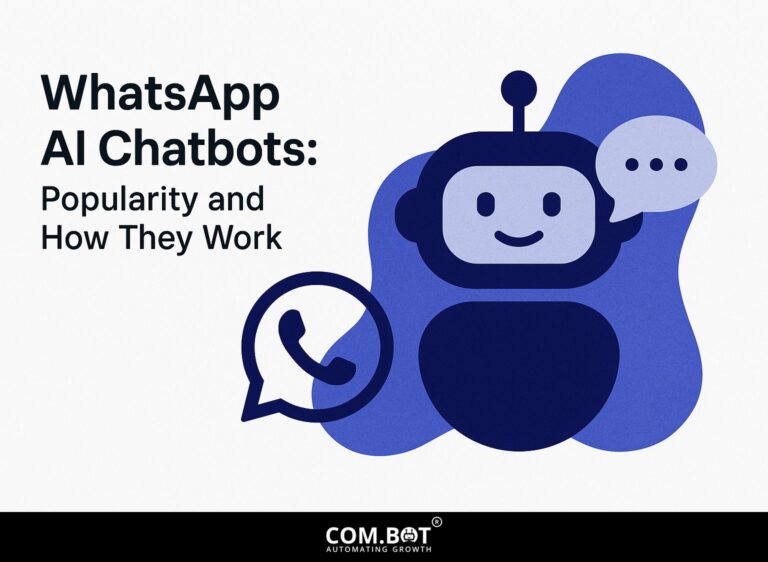WhatsApp API Integration: AI, CRM, and Automation Guide
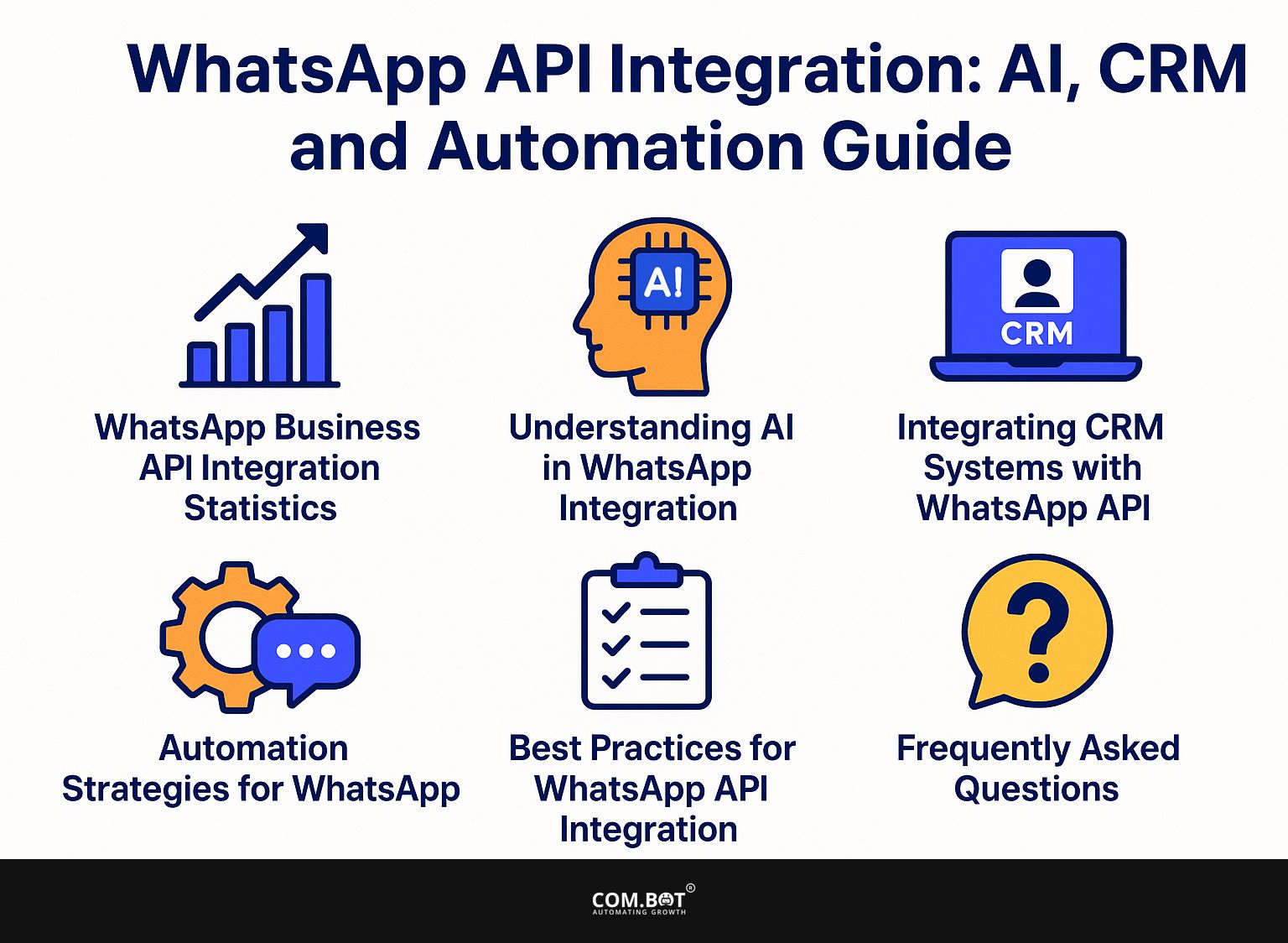
Use the WhatsApp Business API to improve your customer communication by connecting it with CRM and setting up automatic messaging. By using useful tools like Latenode and Twilio, companies can improve how they connect with customers and make their operations more efficient.
In this detailed guide, we’ll talk about how to use these technologies effectively to improve user experience. Improve your messaging approach with automated systems and AI-based feedback!
Key Takeaways:
- WhatsApp API provides many advantages, such as better communication and more interaction with customers.
- AI is important in WhatsApp integration, improving customer interactions and user experience with chatbots.
- When integrating CRM systems with WhatsApp API, choosing the right CRM and managing data synchronization are key factors for success.
- 1 WhatsApp Business API Integration Statistics
- 2 AI in WhatsApp Integration: A Simple Guide
- 3 Integrating CRM Systems with WhatsApp API
- 4 Automation Strategies for WhatsApp
- 5 Best Practices for WhatsApp API Integration
- 6 Frequently Asked Questions
- 6.1 1. What is WhatsApp API Integration and how does it work?
- 6.2 2. Why should businesses consider using WhatsApp API Integration?
- 6.3 3. What are the benefits of using AI in WhatsApp API Integration?
- 6.4 4. Can WhatsApp API Integration be used for different types of businesses?
- 6.5 5. How can businesses use WhatsApp API Integration for marketing purposes?
- 6.6 6. Is WhatsApp API Integration secure for businesses to use?
1. What is WhatsApp API?
The WhatsApp API lets businesses send preset messages and easily add customer communication to their operations. WhatsApp API allows companies to improve customer interaction by sending customized messages to over 2 billion users.
Companies can use features such as automatic responses, alerts, and customer service through chatbots. For example, connecting the API with tools like Twilio can make managing messages simpler.
By creating automatic replies for common questions, companies can quickly reply to customers and make them happier. This helps keep communication steady and makes it easy to handle more customer interactions smoothly.
2. Benefits of Using WhatsApp API
Using the WhatsApp API can make customer communication more personal, which can lead to higher satisfaction.
For example, businesses can use technology to send appointment notices automatically, reducing missed appointments by up to 30%. Customizing responses based on customer inquiries can lead to a 20% increase in overall satisfaction.
Tools like Twilio can seamlessly integrate the WhatsApp API, allowing for easy message automation without extensive coding. Sending messages to specific groups of customers with broadcast lists ensures they receive important updates quickly, encouraging them to remain loyal and make repeat purchases.
For more comprehensive solutions, exploring WhatsApp CRM Integration: Applications and Third-Party Tools can enhance communication efficiency significantly.
WhatsApp Business API Integration Statistics
WhatsApp Business API Integration Statistics
WhatsApp Usage and Business Integration: Global Reach and Usage
WhatsApp Usage and Business Integration: Engagement and Communication
WhatsApp Usage and Business Integration: User Engagement Preferences
WhatsApp Usage and Business Integration: Industry Impact
The WhatsApp Business API Integration Statistics Explain how companies use WhatsApp to make communication better and increase engagement. With a vast user base of 2.7 billion global active users and 50 million businesses Businesses can use WhatsApp to talk directly and quickly with customers globally.
Regarding Engagement and Communication, the platform boasts an impressive 98% average open rate for messages. This high engagement level reflects the immediacy and personal nature of instant messaging, which significantly surpasses traditional email open rates. Furthermore, businesses experience a 40% reduction in response time
This helps them respond to customer questions quickly, improving customer happiness. The integration also results in a 30% operational cost saving Faster replies and easier communication mean fewer resources are needed for customer service.
- User Engagement Preferences: The statistics reveal that 54% of users prefer receiving marketing messages via WhatsApp. Additionally, 67% prefer messaging over email or phone, showing a change towards communication methods that are more engaging and immediate. Marketing through WhatsApp can lead to a 45% increase in sales, demonstrating its effectiveness in driving conversions.
Industry Impact is significant, particularly in e-commerce, where there is a 20% increase in repeat purchases because of quick and direct chats through WhatsApp. In the financial sector, 90% of customers prefer using WhatsApp for communication, highlighting its dependability and simplicity for using services and making transactions.
Overall, these statistics show how WhatsApp Business API improves communication, helps connect with customers, and makes operations work better. By using this platform, businesses can improve their customer service, simplify processes, and increase sales and customer loyalty.
AI in WhatsApp Integration: A Simple Guide
Adding AI to WhatsApp makes customer interactions better by turning regular questions into quick, computer-driven chats. For those interested in exploring the full range of benefits, our insights on AI Chatbots: Multilingual Support, Benefits, and Implementation provide valuable information.
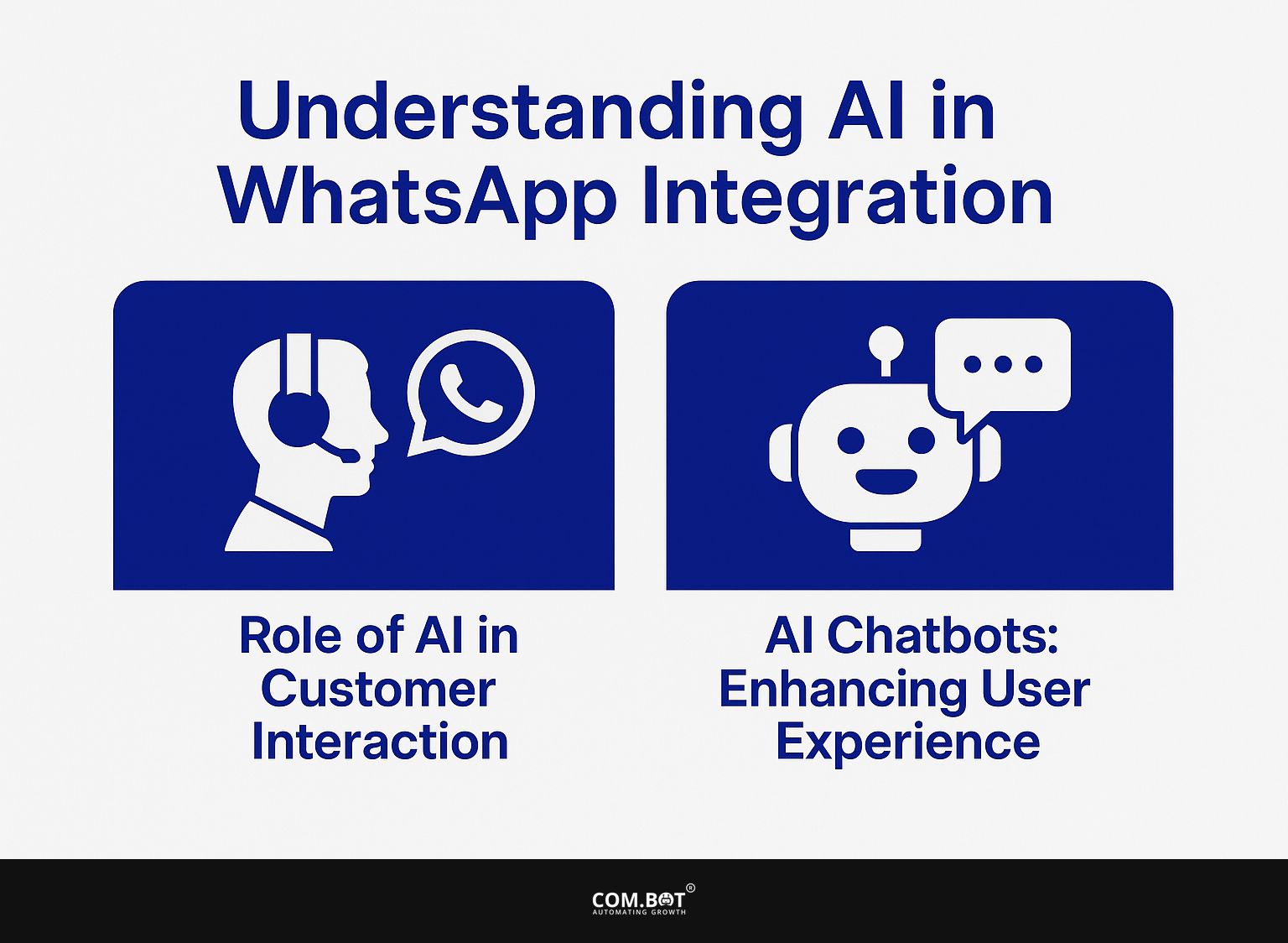
1. Role of AI in Customer Interaction
AI is important for changing how businesses talk to customers by providing fast responses and easy management of questions through automatic systems. For example, AiSensy allows companies to send automatic messages on WhatsApp, providing round-the-clock help and cutting down on how long it takes to reply.
Companies like Zomato have successfully implemented this tool, allowing them to reply to customer inquiries in seconds rather than minutes.
Integrating AI chatbots can handle common queries such as order tracking or reservations seamlessly, freeing up human agents to focus on complex issues. This technology improves user experience and satisfaction, building better customer relationships.
2. AI Chatbots: Enhancing User Experience
AI chatbots integrated with WhatsApp can handle up to 80% of routine inquiries, freeing human agents to tackle complex issues.
For instance, a retail company implemented a WhatsApp chatbot to address customer questions about order status and returns. Within three months, they saw a 30% increase in customer satisfaction ratings and a 25% reduction in response times.
With tools like ManyChat or Chatfuel, they set up automatic replies for frequently asked questions. Improved customer service and let staff handle detailed questions, which improved user interaction and satisfaction.
Integrating CRM Systems with WhatsApp API
Linking CRM systems with the WhatsApp API simplifies communication processes, improving how customer relationships are managed. To explore the advantages further, see also: WhatsApp API Setup: Components and Benefits.
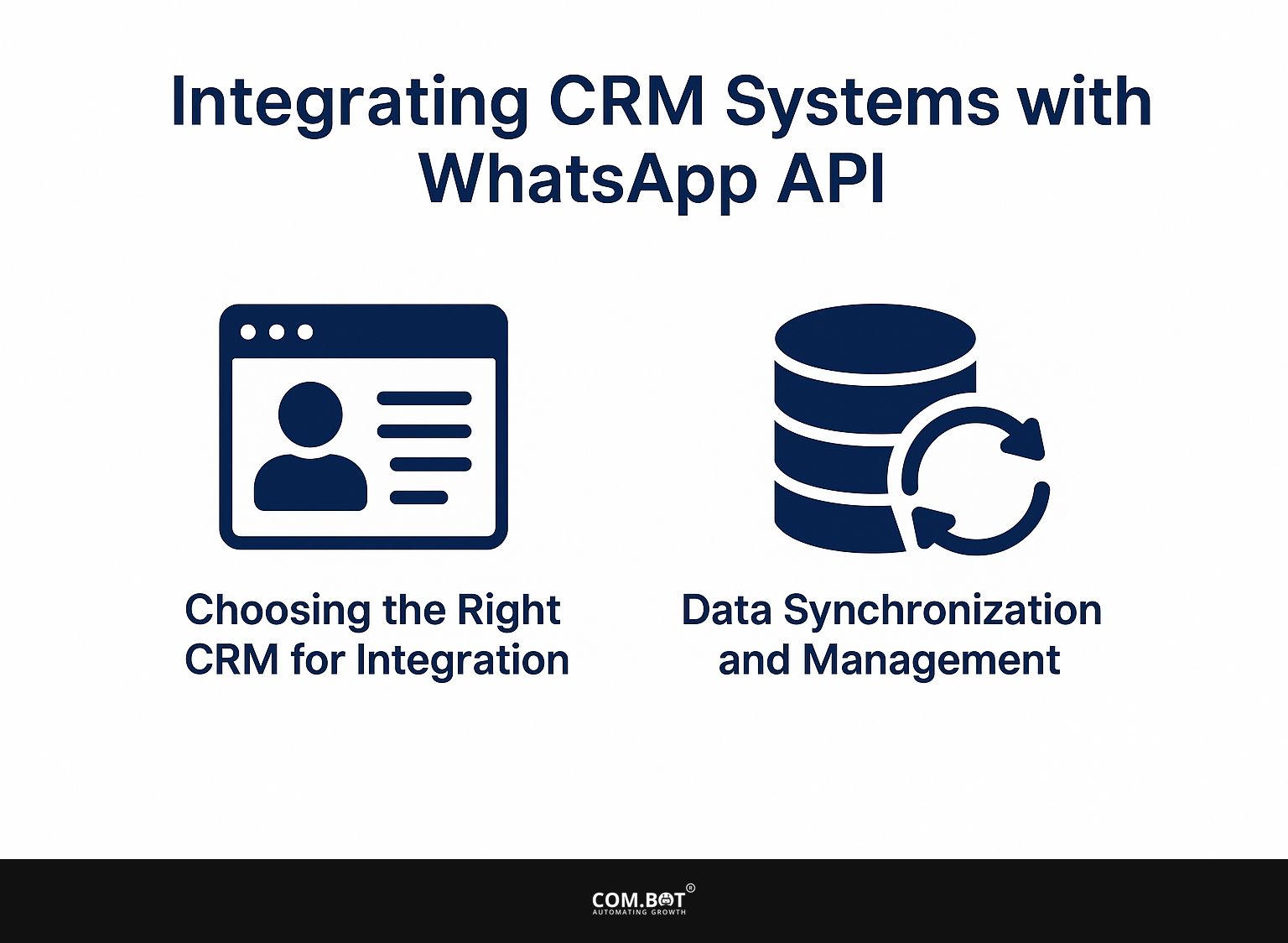
1. Choosing the Right CRM for Integration
Selecting the appropriate CRM system for WhatsApp API integration can significantly affect the workflow efficiency and customer engagement. When selecting CRMs for this purpose, consider multiple aspects. Compatibility is important; make sure the CRM works well with WhatsApp for easy communication.
Pricing varies widely, with platforms like Salesforce starting at $25/user/month, while HubSpot offers a free tier for smaller teams.
Important features are essential-HubSpot’s visual reporting tools can simplify analytics, while Zoho offers various automation options. Trying out demo versions can show how each system suits your needs, helping you pick the best option for your business.
2. Data Synchronization and Management
Keeping data updated between the WhatsApp API and CRM systems ensures accurate customer details and efficient processes.
To set up synchronization, start by using a low-code platform like Latenode, which allows you to connect the WhatsApp API with your CRM seamlessly.
- Start by setting up your data mapping – make sure fields like customer name and contact number match correctly between the systems.
- Next, set up triggers to get instant updates and stop data from being copied.
- Regularly check integration logs to spot any unusual activity.
- Set up alerts for any errors to keep data correct and systems running smoothly.
Automation Strategies for WhatsApp
Using reliable automation techniques on WhatsApp can make operations more efficient and better customer interactions (learn about the benefits of AI WhatsApp Bots here).
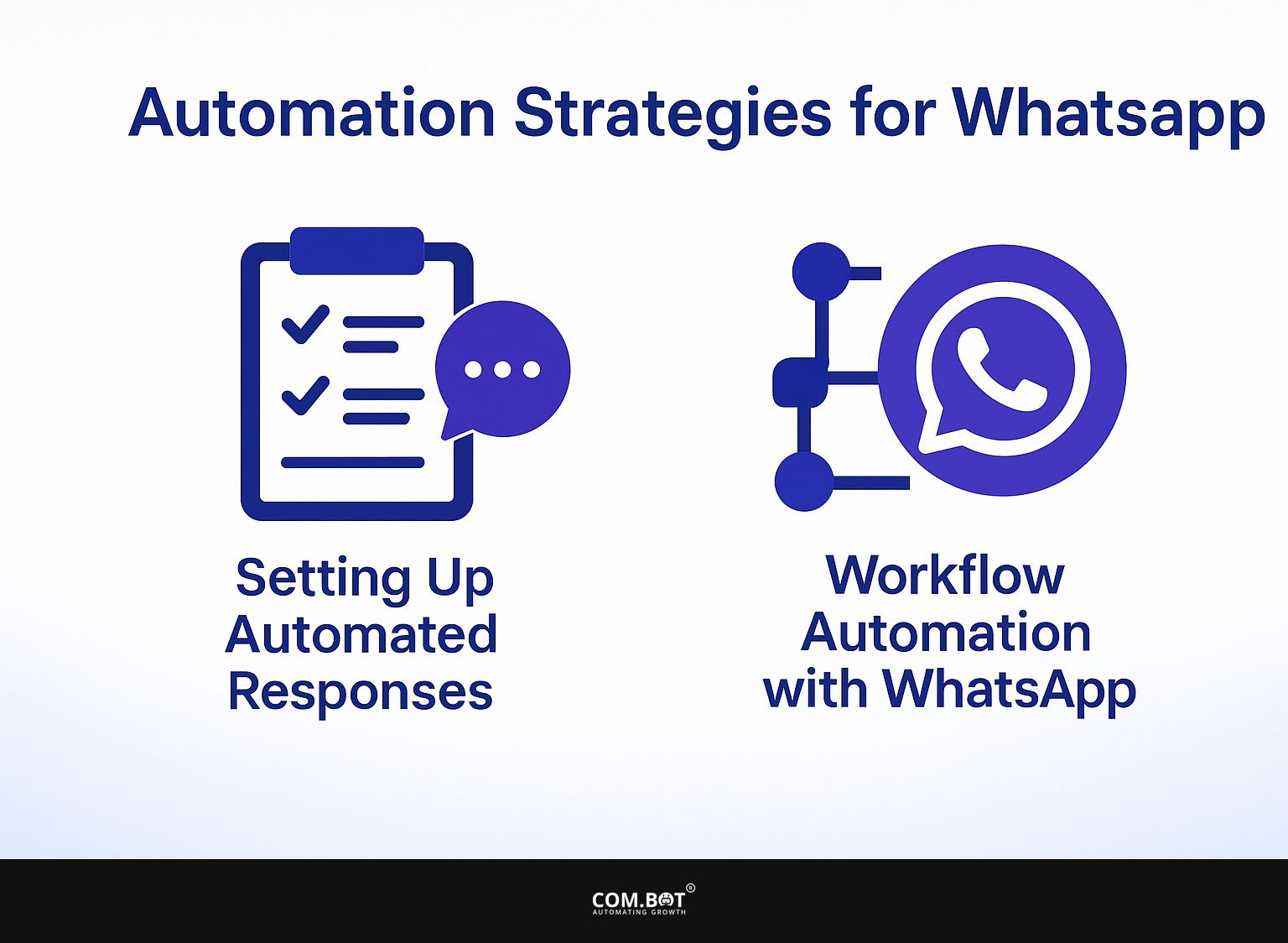
1. Setting Up Automated Responses
Using automatic replies on WhatsApp can make communication more efficient, helping customers get quick answers to their questions.
To set up automatic replies using the WhatsApp API, follow these steps:
- First, sign up for the WhatsApp Business API.
- Then, create a flow using a platform like Twilio or MessageBird for ease of setup.
- Design templates for frequently asked questions, such as:
- “What are your business hours?” – Response: “We are open from 9 AM to 5 PM, Monday to Friday.”
- “How can I track my order?” – Response: “You can track your order using the link provided in your confirmation email.”
Statistics indicate that businesses experience a 75% reduction in response times after implementing these automated systems.
2. Workflow Automation with WhatsApp
Using WhatsApp to manage tasks can make operations better by simplifying lead management and customer communication. To implement effective workflow automation on WhatsApp, businesses should consider using tools like Zapier for integration.
For example, set up an automation that adds new leads from a web form directly into a WhatsApp group, ensuring immediate outreach. Using WhatsApp Business tools like quick replies can improve interaction-set up answers for common questions to reply faster.
Businesses like Shopify use these methods effectively, gaining response times that are up to 50% faster, which results in greater customer satisfaction and loyalty.
Best Practices for WhatsApp API Integration
Following recommended methods in WhatsApp API integration is key to staying compliant and improving customer happiness.
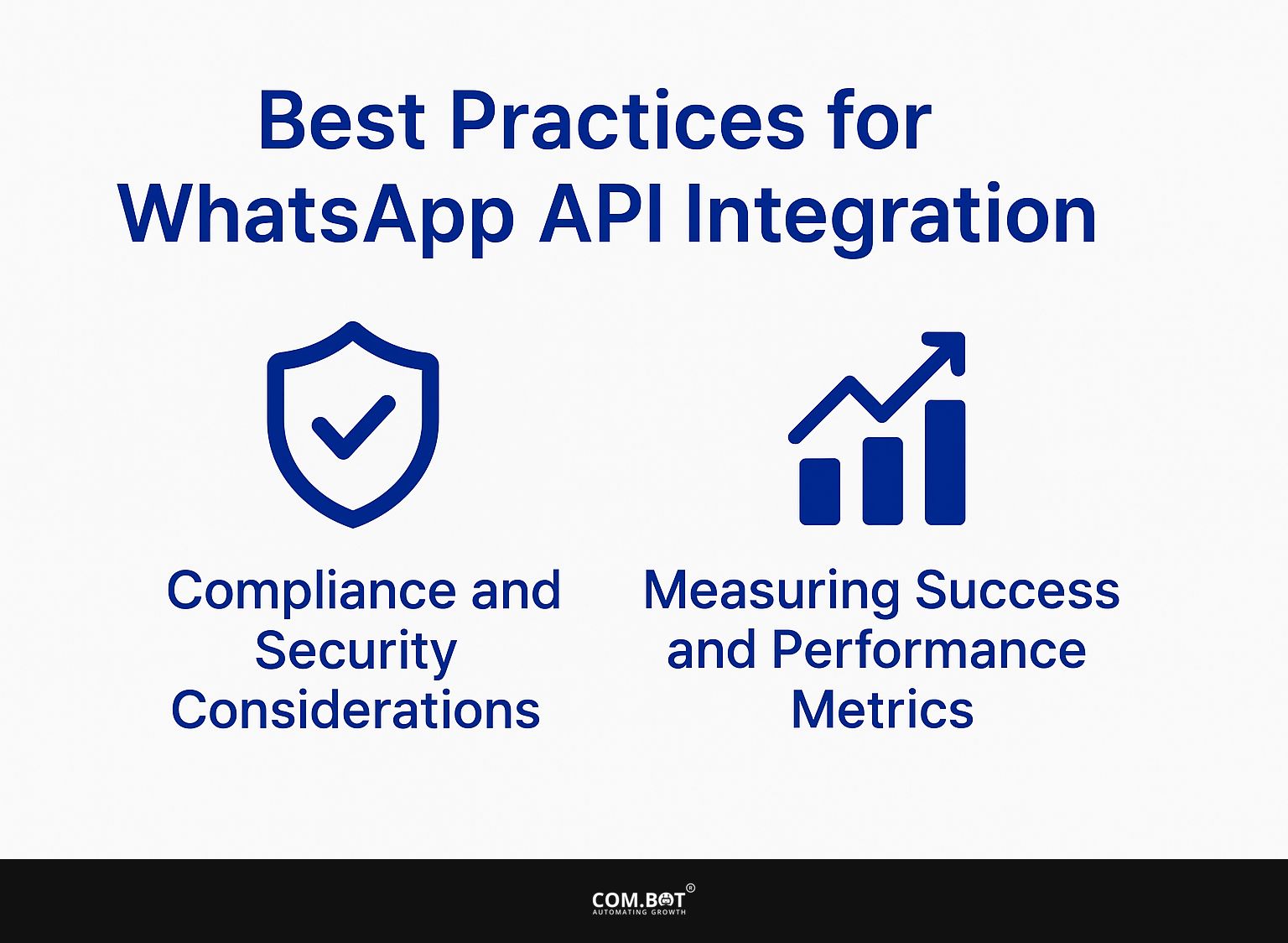
1. Compliance and Security Considerations
Adhering to compliance and security measures is critical when implementing the WhatsApp API to protect customer data effectively. Begin by familiarizing yourself with GDPR guidelines on data handling. Make sure to ask people for consent before collecting their information.
Provide easy-to-understand privacy policies that detail how their data will be handled. Consider employing tools like Data Loss Prevention (DLP) software to prevent sensitive information leaks.
Regularly check to see if rules are being followed, and add features like two-factor authentication to improve security. Educate your team on security protocols to minimize risks and reinforce a culture of data protection within your organization.
2. Measuring Success and Performance Metrics
Measuring the success of WhatsApp API integration involves tracking key performance metrics to evaluate customer engagement and operational efficiency.
Start by monitoring response times to gauge how quickly your team engages with customer inquiries. Tools like Google Analytics can help analyze engagement rates, allowing you to see how often users interact with messages.
Use customer satisfaction surveys post-interaction to gather qualitative data. Using WhatsApp Business Analytics gives you detailed information customized for your WhatsApp messages.
By regularly checking these metrics, you can fine-tune your plan and make both user interactions better and internal processes more effective.
Frequently Asked Questions
1. What is WhatsApp API Integration and how does it work?
WhatsApp API Integration is the process of connecting a business’s CRM or automation software with the WhatsApp messaging platform. This helps businesses use AI and tools to automatically communicate with their customers on WhatsApp, offering a quicker and more personalized experience.
2. Why should businesses consider using WhatsApp API Integration?
Connecting with the WhatsApp API can significantly improve how a business communicates with its customers. By using AI and CRM tools, businesses can set up automated systems and customize how they communicate with customers, which results in improved customer involvement and happiness.
3. What are the benefits of using AI in WhatsApp API Integration?
When companies use AI with WhatsApp API integration, they can respond to customers automatically and provide personalized communication. This leads to faster response times and a more efficient customer service experience.
4. Can WhatsApp API Integration be used for different types of businesses?
Yes, WhatsApp API Integration is beneficial for a variety of businesses, including e-commerce, customer service, and marketing. Any business that uses WhatsApp for messaging can gain from connecting it with their AI and CRM systems.
5. How can businesses use WhatsApp API Integration for marketing purposes?
Businesses can combine WhatsApp API with their CRM and software to run customized marketing campaigns on the messaging platform. This can include sending promotional messages or providing customer service through WhatsApp, leading to better customer engagement and retention.
6. Is WhatsApp API Integration secure for businesses to use?
Yes, WhatsApp API Integration is secure for businesses to use. It adheres to WhatsApp’s strict security standards and data privacy policies, keeping customer information safe and confidential. Businesses can establish security measures in their CRM or software to better safeguard customer information.
